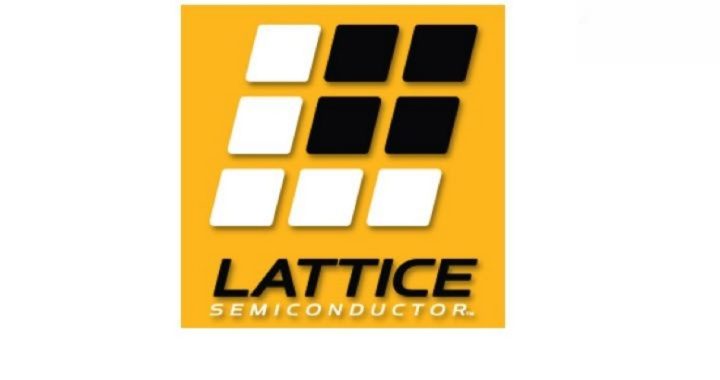
Treasury Secretary Steven Mnuchin announced on Wednesday that the proposed purchase of Lattice Semiconductor — the world’s second-largest manufacturer of simple and complex programmable logic devices — by China-backed Canyon Bridge Capital Partners was blocked by President Trump:
Today, consistent with the administration’s commitment to take all actions necessary to ensure the protection of U.S. national security, the president issued an order prohibiting the acquisition.
Mnuchin said Trump stopped the deal from happening owing to “the potential transfer of intellectual property [IP] to the foreign acquirer, the Chinese government’s role in supporting this transaction, the importance of semiconductor supply chain integrity to the United States Government, and the use of Lattice products by the United States Government.”
So important was this deal to Canyon Bridge that it, along with its target, Lattice, made three separate attempts to persuade President Trump to change his mind, but failed each time. Trump decided that the few jobs the acquisition might create — estimated to be around 300 — wasn’t worth the risk of letting China have access to more U.S. high-tech military intellectual property.
Trump had been alerted to the IP risks of the deal, inked last November, thanks to a letter sent by 22 members of the House of Representatives to the Committee on Foreign Investment in the U.S. (CFIUS) in December. The group warned not only that the deal could provide China with more critical U.S. technology, but that Canyon Bridge tried to hide the fact that it was being backed by the Chinese Communist government. Lattice already has a development center in Shanghai, so most of its designs have probably already been stolen, anyway, but stopping the sale does send a message.
China has a 10-year, $150 billion plan to acquire as much of that critical technology as it can, by any means that it can, in order to build its own technology sector. It doesn’t care how it acquires it, either. James Andrew Lewis, a senior vice president at the Center for Strategic and International Studies in Washington, wrote in his blog: “China does not play by the rules, and it has gotten away with it for too long.” Industry groups and think tanks have accused China of taking a short cut to building its high-tech manufacturing industry by spying, hacking, stealing, or acquiring companies like Lattice.
It also uses business leverage, too, requiring American high-tech firms wanting to do business in China to give the communist government access to its trade secrets including its IP. As the American Chamber of Commerce in China noted in a report published in April: “Chinese government authorities jeopardize the value of [U.S.] trade secrets by demanding unnecessary disclosure of confidential information for product approvals.”
China has a “hacker army” of between 50,000 and 100,000 people working 12-hour days to infiltrate and extract valuable information that they can’t, or aren’t able to, develop on their own. It’s easier to steal than it is to create, and the theft of American IP is enormous. Last year China acquired some $46 billion worth of American technology and has spent another $25 billion in 83 deals so far this year. But that’s just what has been reported above-ground.
That’s chump change, according to the Commission on the Theft of American Intellectual Property. It estimates the real cost of the transfer to China of critical U.S. technology secrets and IP, obtained both legally and illegally, at up to $600 billion every year!
Some American companies are so hungry to enter the massive Chinese market that they’re more than willing to pay the price. In the past year, Apple announced plans to open research and development facilities in four Chinese cities, each one with the understanding that the communist regime will have access to its technology for its own purposes. Amazon and Microsoft already have centers in China that partner with companies connected to the communist regime. These companies consider the giving up of its valuable IP in order to gain access as just a cost of doing business there.
There’s another deal that the president is considering nixing: the purchase of MoneyGram — the world’s largest provider of money transfers — by Jack Ma, the co-founder of Alibaba. One can only surmise how anxious the communist regime in China would be to get its hands on all the financial data buried in MoneyGram’s computers.
Those busy Chinese hackers already struck gold back in June 2015 when they hacked their way into the computers belonging to the Office of Personnel Management (OPM). The 21.5 million records they stole included names, dates of birth, Social Security numbers, and addresses, and included the detailed security clearance-related background information on each individual as well. On August 27, in an item that somehow failed to make headlines in the mainstream media, the FBI arrested a Chinese national suspected of helping to create the malware that was used in the successful breach.
The Chinese communists have learned that it’s much easier and cheaper to steal what they need rather to develop their technology on their own. Trump’s blocking of the Lattice deal may be a little late but it’s an indication to the Beijing regime that the United States won’t be such a patsy in the future.
An Ivy League graduate and former investment advisor, Bob is a regular contributor to The New American magazine and blogs frequently at LightFromTheRight.com, primarily on economics and politics. He can be reached at [email protected].



